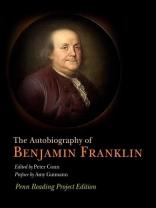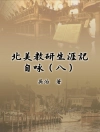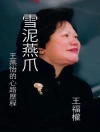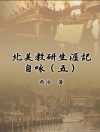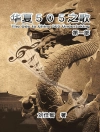Printer and publisher, author and educator, scientist and inventor, statesman and philanthropist, Benjamin Franklin was the very embodiment of the American type of self-made man. In 1771, at the age of 65, he sat down to write his autobiography, ‘having emerged from the poverty and obscurity in which I was born and bred to a state of affluence and some degree of reputation in the world, and having gone so far through life with a considerable share of felicity.’ The result is a classic of American literature.
On the eve of the tercentenary of Franklin’s birth, the university he founded has selected the Autobiography for the Penn Reading Project. Each year, for the past fifteen years, the University of Pennsylvania has chosen a single work that the entire incoming class, and a large segment of the faculty and staff, read and discuss together. For this occasion the University of Pennsylvania Press will publish a special edition of Franklin’s Autobiography, including a new preface by University president Amy Gutmann and an introduction by distinguished scholar Peter Conn. The volume will also include four short essays by noted Penn professors as well as a chronology of Franklin’s life and the text of Franklin’s Proposals Relating to the Education of Youth in Pennsylvania, a document resulting in the establishment of an institution of higher education that ultimately became the University of Pennsylvania.
No area of human endeavor escaped Franklin’s keen attentions. His ideas and values, as Amy Gutmann notes in her remarks, have shaped the modern University of Pennsylvania profoundly, ‘more profoundly than have the founders of any other major university of college in the United States.’ Franklin believed that he had been born too soon. Readers will recognize that his spirit lives on at Penn today.
Essay contributors: Richard R. Beeman, Paul Guyer, Michael Weisberg, and Michael Zuckerman.
Table of Content
Preface: The Power of Values, by Amy Gutmann
Introduction: Benjamin Franklin and the American Imagination, by Peter Conn
PART I. THE AUTOBIOGRAPHY
The Autobiography of Benjamin Franklin, edited by Nathan G. Goodman
PART II. CRITICAL ESSAYS
Benjamin Franklin and the American Enlightenment, by Richard R. Beeman
Freedom of Reason, by Paul Guyer
An Inclination Joined with an Ability to Serve, by Michael Zuckerman
The Key to Electricity, by Michael Weisberg
APPENDICES
Proposals Relating to the Education of Youth in Pennsylvania, by Benjamin Franklin
A Chronology of Franklin’s Life, compiled by Mark Frazier Lloyd
Contributors
About the author
Peter Conn retired from the University of Pennsylvania as Vartan Gregorian Professor of English and Professor of Education and was a member of the graduate groups in the history of art and American civilization. His publications include The Divided Mind: Ideology and Imagination in America, 1898–1917 (Cambridge University Press) and Literature in America (Cambridge). Pearl S. Buck: A Cultural Biography (Cambridge) was chosen as a “New York Times Notable Book.” The American 1930s: A Literary History was published by Cambridge in 2009.Conn wrote and presented a video course and book on “American Best Sellers” for the Teaching Company. He has given talks at the Brooklyn Museum of Art, the Pennsylvania Academy of Fine Arts, the Whitney Museum, the Philadelphia Museum of Art, and other institutions, on a number of American artists, including Edward Hopper, William Christenberry, Thomas Wilmer Dewing, Maxfield Parrish, Charles Sheeler, Winslow Homer, Wharton Esherick, and The Eight.A John Simon Guggenheim Foundation Fellow, Conn has also received several awards for distinguished teaching. He has served as literary consultant on numerous television projects, including the Emmy-winning series, ‘The American Short Story, ‘ adaptations of novels by James Baldwin and Saul Bellow, and a video biography of John Dos Passos.Since 1993, Conn has served as visiting professor at the University of Nanjing in the People’s Republic of China. In 2011 and again in 2013, sponsored by the Ford Foundation, Conn lectured in West China on topics in American studies.
